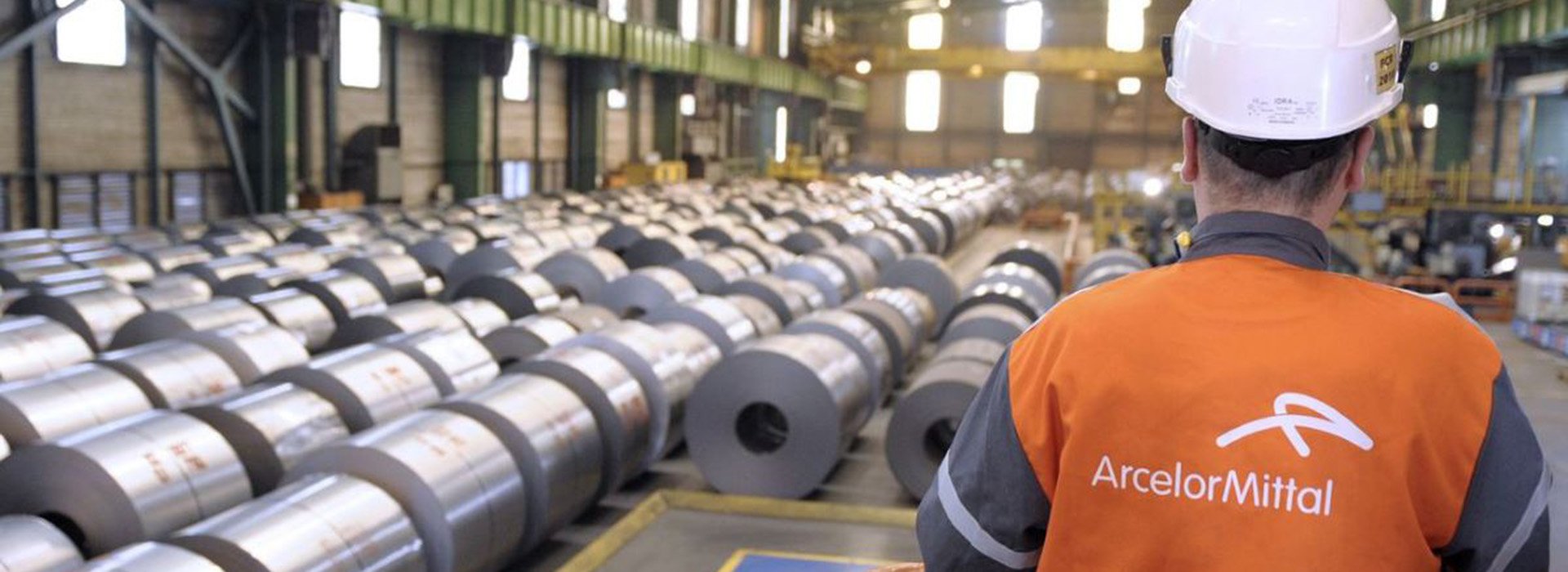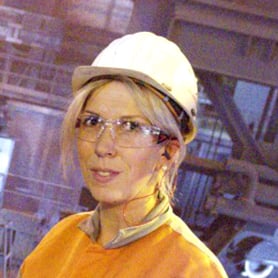Julie Malherbe: Understanding How Inputs Impact Outputs
Not afraid to take on a challenge, Julie Malherbe's career shows that determination is key to achieving your potential. As a Head of Production at ArcelorMittal, Julie talks to dss+ on why process, people and governance are important drivers of operational excellence.


Julie Malherbe
Head of Production, Rolling Mill, ArcelorMittal, Luxembourg
Q.
Can you describe your route to taking on an operational role and what it entailed?
I studied industrial systems engineering and started my career in environmental safety in the steel industry, where my mission was to implement an integrated management system and obtain appropriate certifications. I then got the opportunity to support the implementation of fatality prevention standards at Long Carbon Europe, which is part of ArcelorMittal. It was here I had the chance to visit different plants and see first hand how the various safety rules could improve operational efficiency or be viewed as an operational constraint. In 2009, I then had the opportunity to join the continuous improvement team on the metal production shop floor. For me, it was an appealing move due to my academic background, but I also felt it was the right way to take what I had learned in previous roles and learn more about technical processes. This would then help to develop tools that enable operational leaders to evaluate real potential improvements and subsequently determine their operational and financial value. During this period, I often saw the difficulties managers had in leading some of these technical projects and wondered what I would do in their place. As part of the team, I was able to give some advice, but I wanted to make a greater impact. So I requested a production management role, which was complicated as places were limited, and also male-dominated. However, I was determined and made the case to human resources that I could make a difference in providing solutions and best practices and in 2014 I had the opportunity to become the production manager of 45 people in the rolling mill. So this was my first mission in an operational function and one where I felt I could make an impact. My main achievement was optimising and improving the workshop's technical performance across a range of processes. I am now the overall production manager of the rolling mill, managing 240 people.
"You have to demonstrate to everyone, including yourself, that you can lead a team. Immersing yourself in a ground-level process is one way to test your knowledge and theories to problem solve. "
– Julie Malherbe, Head of Production, Rolling Mill, ArcelorMittal, Luxembourg
Q.
How important was it for you to keep learning before taking on more responsibility?
I think you have to demonstrate to everyone, including yourself, that you can lead a team. Immersing yourself in a ground-level process is one way to test your knowledge and theories to problem solve. It required determination at the time, whereas it's much easier and normal to see women in an operational function in the steel industry today. I think my experiences have helped on several levels. First, at management level, I gained clear sight of the objectives and strategies leadership require. Then working on the shop floor allowed me to see what it was like to implement that strategy from a practical perspective and learn how to find solutions, manage people and create a team spirit. It's essential to understand how our input across an organisation impacts outputs.
Q.
What's your approach to corporate culture and communication as a driver of continuous operational improvement?
I think changing the mindset of individuals and team behaviours are important drivers of operational improvements. You have to convince everyone within your team by constantly challenging yourself and being proactive. Whether it's operational excellence, safety or sustainability, it's not the responsibility of one person; everyone should play a role and spend a good percentage of their time brainstorming to find solutions for improvement and innovation from the shop floor up. I do that myself and expect it from others. By developing this type of inclusive corporate culture, operational teams have a better understanding of why decisions are made and have a clear view of the business's annual objectives and strategy in the short, medium, and long term. How you communicate that vision is also essential. It requires adapting the language to reflect the needs of the recipient in a way that removes potential frustration and conflict. For example, leadership may have to implement changes related to costs or production efficiency. How this message is relayed to the shop floor can be interpreted in a number of ways by different people.
So it's important to take the time to translate and mitigate potential assumptions and misunderstandings that can often happen with corporate communication. It's particularly important to highlight the positives of change that can lead to gaining a competitive advantage. For example, in 2016, we had a challenge from leadership to develop a new and broader range of best-in-class steel profiles. So working with our research team and involving a lot of trial and error, we eventually found a cost-effective solution. We achieved shop floor buy-in because they understood the aim of the challenge and wanted to be part of that journey to become world leaders in steel profiles.
"Whether it's operational excellence, safety or sustainability, it's not the responsibility of one person; everyone should play a role."
– Julie Malherbe, Head of Production, Rolling Mill, ArcelorMittal, Luxembourg
Q.
How do safety and sustainability issues impact your role in reaching operational excellence?
My priority is the safety of my team and that they return home in good health after their work. Each morning I start the day with a health and safety meeting with shop floor managers, and each operational meeting begins with a safety point. While there is a specific health and safety department where rules and standards are determined, there is a need to take personal responsibility for safety actions. To be a good operational manager, you have to have good safety outcomes. This can't be compromised, and I believe in taking active and daily responsibility for safety rather than simply referring to regulations on an ad hoc basis. Sustainability is also a vital element of the operational function. There is little doubt that like all businesses we need to develop more ecological materials, in our case steel profiles that are both good for the environment and financially achievable. We already take the scrap metal from the initial production process and use it at a different stage of our production process whenever possible. So it's a question of constantly looking at more efficient production methods, new materials and recycling with safety and sustainability in mind, as they are both inextricably linked to the production process. Focusing on process, people, and governance nourishes our ability to reach operational excellence. Of course, there is a delicate balance between these three pillars as they each have separate impacts on how operational excellence is achieved. However, when they work well together they are powerful enablers.
"To be a good operational manager, you have to have good safety outcomes. This can't be compromised, and I believe in taking active and daily responsibility for safety rather than simply referring to regulations on an ad hoc basis. "
– Julie Malherbe, Head of Production, Rolling Mill, ArcelorMittal, Luxembourg